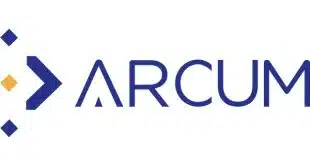The federal judge presiding over Discover Financial Services' antitrust case against Visa Inc. and MasterCard Inc. for lost business from would-be financial-institution partners has disposed of pre-trial motions, setting the stage for trial in a network conflict that began a decade ago. At issue is the alleged harm to Discover while Visa and MasterCard had rules or policies in place that banned their bank and credit-union members from issuing cards on Discover's network and, Discover claims, also prevented bank card acquirers from signing merchants for Discover acceptance. Both Visa and MasterCard issued statements last week indicating they regarded the decisions by Judge Barbara S. Jones of U.S. District Court in Manhattan as a partial victory. Among a number of summary-judgment issues before her, Jones rejected Discover's assertion of an inter-association conspiracy by Visa and MasterCard. And debit cards apparently are out as a focus of scrutiny at trial as Visa said Jones dismissed Discover's claims of alleged monopolization by Visa of the debit market, and MasterCard said Jones dismissed Discover's debit-related claims against it. Despite that, Discover says it is generally pleased with the pre-trial rulings. “We welcome the decision by Judge Jones granting our motion for summary judgment on the core issues of the case and denying the most significant motions by the defendants,” says the statement issued today. “Judge Jones' decision will prevent the defendants from relitigating her prior rulings, which declared that the anti-competitive and anti-consumer rules of Visa and MasterCard violated federal antitrust laws and harmed Discover. Those rules effectively prevented financial institutions from working with Discover Network to offer consumers a full range of choice in credit and debit cards. They also prevented financial institutions from signing up merchants to accept Discover Network-branded cards. In both of these ways, the illegal rules also restrained Discover's merchant acceptance levels and negatively impacted the ability of Discover cardholders to use their credit cards.” Trial had been set for Sept. 9 but is now scheduled for Oct. 14. Parties frequently settle civil lawsuits between the time of final pre-trial motions and the trial date, but the warring card networks haven't given any public indication of settlement talks. Riverwoods, Ill.-based Discover, the No. 4 general-purpose credit card network by charge volume after Visa, MasterCard, and American Express Co., has a lot riding on the case. It racked up $101 million in expenses for outside attorneys and consultants from 2005 through 2007, according to its annual report for fiscal 2007. And it must pay its former parent company, investment bank Morgan Stanley, the first $700 million in any cash or non-cash proceeds it nets in a recovery after expenses, and potentially up to $1.5 billion. Morgan Stanley owned Discover until spinning it off last year. Filed in 2004, Discover's lawsuit traces its origins to an antitrust action the U.S. Department of Justice filed in October 1998 against Visa and MasterCard. The DoJ challenged the associations' bans on their members issuing cards on competing networks such as AmEx and Discover. The DoJ prevailed at the trial-court level but the associations appealed all the way to the Supreme Court, which declined to review the case (Digital Transactions News, Oct. 4, 2004). That led to the repeal of the bans and cleared the way for AmEx and Discover to sue the associations for lost business. In separate deals with Visa late last year and MasterCard in June, AmEx settled for a total of up to $4.05 billion. Both AmEx and Discover have been busy since 2004 signing up bank issuers and bank card acquirers. Discover now claims 35 financial-institution issuers of Discover-branded credit, debit, or prepaid cards. The newest is Silverton Bank, an Atlanta-based correspondent bank for community banks throughout the country, which on Tuesday said it would issue two Discover-branded rewards credit cards. AmEx, meanwhile, has signed some of the nation's largest banks, including Citigroup Inc. and Bank of America Corp., as AmEx issuers. For both Discover and AmEx, the basic pitch is that the bank partners get finance charges and related account revenue while the networks get the transaction-generated revenues when cardholders make purchases. But payments researcher Adil Moussa of Boston-based Aite Group LLC says that, despite all the hoopla, the cards issued under such agreements haven't had much of an effect yet. Most banks are more concerned about attracting and retaining profitable cardholders in their primary portfolios rather than cutting deals with AmEx and Discover, he says. Citing Discover's financial reports, Moussa says that third-party cards so far account for only about 7% of Discover's processing volume. “I'm still failing to see a strong proposal by Discover,” he says. Discover begs to differ and said that Jones' decisions afford “the jury an opportunity to hear the case and assess Discover's damages,” which the company pegs at $6 billion. But in its statement, MasterCard said that Discover lost market share last year despite its freedom to sign third-party issuers.
Check Also
Consumer Information Gains Ground in Criminal Quests, Javelin Report Finds
Ever-clever criminals are expanding their scope in information as well as funds. That’s according to …




